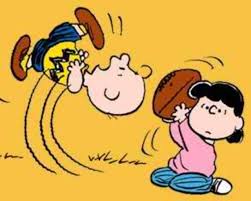 Every company, or at least every company that we talk to at Imagine, is looking for ways to generate more leads. Not just more leads, but more qualified leads. Sourcing qualified leads is what a sales development team is all about. It’s what gets them excited to come in to work every day - cranking out phone calls to follow up with potential prospects and qualify them for the sales team.
Every company, or at least every company that we talk to at Imagine, is looking for ways to generate more leads. Not just more leads, but more qualified leads. Sourcing qualified leads is what a sales development team is all about. It’s what gets them excited to come in to work every day - cranking out phone calls to follow up with potential prospects and qualify them for the sales team.
Just to be sure we are talking about the same team, I want to talk a little bit more about the role of the sales development team. Sales development teams are responsible for identifying, connecting with and qualifying leads that get turned over to the sales team. In other words, they create sales qualified leads or SQLs. As SQLs are created, they are handed over to the sales team who is then responsible for managing the sale through the remainder of the process. Having this distinction between sales development reps (SDRs) and new sales reps allows each group to focus on what they do best. Sales professionals are able to stay focused on the very bottom of the funnel while the sales development team continues to build their pipeline.
Sales development teams can play a vital role in the demand generation process but just having one won’t make them successful. There are many pitfalls you need to avoid to keep your team on track. Here are five reasons sales development teams fail.
1. The team lacks direct management and leadership
Sadly we see this far too often. Many times sales development teams are managed by a part-time resource. It might be the VP of sales or even someone in a marketing role because they have been tasked with lead generation for the company. In order to have an effective and successful lead generation engine, the team requires a full time dedicated manager willing to provide the direction and coaching necessary for their success.
Since I am currently managing the SDR team at Imagine, I can tell you how important it is to have direct management and leadership for the team. Leaving an SDR team to conduct their work without proper management can lead to sales issues that you are not ready or interested in dealing with as you grow your business. Sales development can be extremely challenging. Without the right oversight to provide coaching, direction, feedback and motivation, there is no chance for success.
2. No clear definition of a sales qualified lead
What does sales qualified lead really mean? It is vitally important that the sales team and the sales development team are clear and agree on the criteria that define an SQL. If this definition has not been established, it will lead to friction between the two teams, lost productivity and potentially lost opportunities.
3. Bad compensation plans or wrong incentives
If the sales development team is compensated improperly, they will be motivated to take the wrong actions. For example, in our experience we have encountered compensation plans for SDRs that are based on closed opportunities. This forces SDRs into a sales support role where their focus is on setting appointments and follow-ups which is the role of the sales team. If the SDRs are focused on that, who is focusing on developing SQLs?
A better approach is to compensate SDRs for the number of SQLs identified. They have direct control of this process and will be motivated to work harder to identify SQLs. SDRs cannot directly impact closed sales – leave that (and those commissions) to your new sales team.
Bonus programs are a different story. SDRs can have bonus programs available based on the revenue generated by the SQLs they identify but it has to be a bonus and not their main compensation plan.
4. Wrong people in the job
We use something here at Imagine that we learned from Gino Wickman’s Entrepreneurial Operating System (EOS) called right person/right seat. Putting the right person in the right seat is certainly not anything new. Part of Wickman’s EOS includes analyzing every employee to find out if they are the right person/right seat. When we evaluated our SDRs, we identified the weaker SDRs on the team which allowed us to increase coaching or in some cases make replacements.
Since I am personally responsible for interviewing and hiring all of the SDRs at Imagine, I can tell you the right person for an SDR position is different than the right person for account executive, business development or appointment setting positions. They fall into this gray area between the appointment setter and the sales professional. They are a different breed of sales and have to be treated as such. Since they do more than just set appointments, they have to have some business acumen in order to understand the prospects business in an effort to qualify them. It is a different skill set than that of the sales professional who wants to develop relationships and make presentations to a prospect’s executive management team. In fact that person would not be a good SDR. Again, it’s that gray area in between the two.
5. Lack of training and coaching
I had to add this as one of the five reasons sales development teams fail because I have dealt with it at Imagine. We have noticed that without training and coaching, our SDR team has struggled. We now have a formal on-boarding and training program designed specifically for our sales development team. We also provide one- to-one coaching for our team as a part of their growth.
When coaching our sales development team, I start with buyer personas. Yes, you typically think of your marketing campaigns went thinking of buyer personas. However, the SDR will have better conversations and be more successful in qualifying prospects when they understand who it is they are talking to.
There are a number of other training topics that I cover such as leaving voicemails, rating follow-up emails and overcoming objections. Our team also receives coaching and training on how to use our CRM in the most effective manner. We use the Hubspot CRM with all of our clients. Our SDR team is well versed in how they can maximize call volume while effectively qualifying prospects.
In all honesty, I could have written about 20 different topics that would cause your sales development team to fail. Since these are five of the easiest mistakes you can make with your team, I decided to focus on these. However, they’re also easy to correct, if you understand them. If you already have an SDR team in place, you have already taken a step towards making your business better in solving the lead generation problem that every business is facing at some point.
The sales development rep holds one of the most important roles in your sales process. It’s vital to the success of your sales team that you understand your SDRs are different then the rest of your sales and marketing team. Although different, they are just as important (in some cases more important) than the rest of your sales and marketing team.
I want to leave you with this last thought. Although they are different and should be treated differently, they should not be treated with less respect or be valued any less than the rest of your sales and marketing team.

